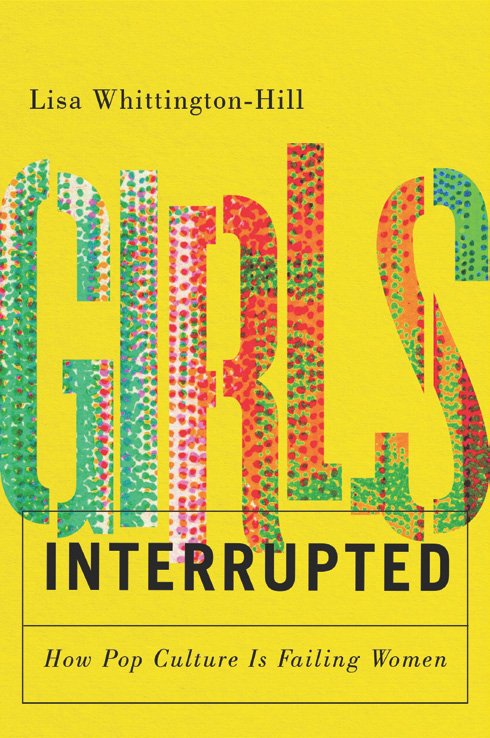Girls, Interrupted: How Pop Culture is Failing Women by Lisa Whittington-Hill
Girls, Interrupted: How Pop Culture is Failing Women
by Lisa Whittington-Hill
Véhicule Press, 2023; 212 pages; $24.95
Reviewed by Natasha Sanders-Kay
“Movements like #MeToo and #Timesup, although they have been invaluable, can give the impression that things are now better for women in Hollywood, in publishing, and in the music industry. That the problems have been fixed, that we can pat ourselves on the back for a job well done and move on. This book exists to prove otherwise.”
So begins Girls, Interrupted, Lisa Whittington-Hill’s searing collection of pop culture criticism. Drawing from tabloid trends, TikTok takedowns, industry statistics, cultural criticism, and more, packed with examples aplenty, an undeniable case is made for widespread media misogyny. The essays illustrate an abundance of double standards, with media judgement and scrutiny of famous women’s appearance, behaviour, marital and maternal status, and mental health and addictions almost always overshadowing any meaningful consideration of their art. Male celebrities (spoiler alert!) tend to fare better. Case in point: “[Winona] Ryder was unemployable for over a decade for stealing socks, while a man like [Chris] Brown can beat women and get an American Music Award — an award he is physically unable to accept because of a restraining order.”
Indeed, this book demonstrates how violent men like Brad Pitt, Shia Labeouf, Charlie Sheen, Mel Gibson, and Mark Wahlberg get award nominations, major projects, support from peers and press — money, success, and second chances. Whittington-Hill traces how famous men’s abuse is often excused because of mental health and substance struggles, while women with such disorders and dependencies are vilified, mocked, and punished — think Britney Spears, Amy Winehouse, Courtney Love, Lindsay Lohan, or any star who is not a man.
Kurt Cobain is referenced a number of times as someone who struggled with drugs and became celebrated as the voice of his generation, while women with these struggles are villainized for setting a bad example. Considering the public outrage over Amy Winehouse’s Grammy wins, Whittington-Hill reflects, “I thought about this outrage when the 2022 Grammy nominations were announced. The list included a homophobic comedian (Kevin Hart), a transphobic comedian (David Chappelle), an abusive comedian (Louis C.K.), and an abusive musician (Marilyn Manson).”
Looking at the rise in celebrity memoirs, Whittington-Hill nods to the genre’s potential for women telling their stories on their own terms — but reveals some caveats: “compared to what men [a]re writing, memoirs by celebrity women [a]re another artifact altogether. There’s a contrast in how they’re marketed, the topics they are expected to cover, and how much of themselves the stars are expected to expose. The gender divide becomes much more problematic, and downright depressing, when you watch how the memoirs are greeted by critics. Rather than assessing a book on its own terms, reviewers revert to stereotypes and cliches. In the process, they miss the actual story.”
Girls, Interrupted also explores topics like ageism in television, female grifters, reinvention narratives, manufactured female feuds, the unlikeable woman trope, and more. Throughout, Whittington-Hill’s brilliant wit is a treat. The collection is full of hilarious one-liners and personal anecdotes, like the time she got locked in a port-a-potty during a pearl Jam performance, (leading to “a liflelong fear of both the band and portable toilets”), and when she was banned from slumber parties for liking Cyndi Lauper more than Madonna.
In drawing from her personal life, the author also illuminates how our collective treatment of famous women impacts us all, preventing us from speaking up about mental health and speaking out against sexual assault.
My criticisms are minor: There’s a touch of awkwardness in terms of congruity as certain celebrities are explored at length in some chapters, then reintroduced fresh in subsequent ones. And I would’ve loved for the book to come with a playlist! Lastly, I wish there was a conclusion chapter, perhaps with the author rebelliously rocking out to her beloved Courtney Love; ending on “pop culture believes that drama is the only art that women can make,” while a killer line, is a downer — then again, so’s Hollywood.

